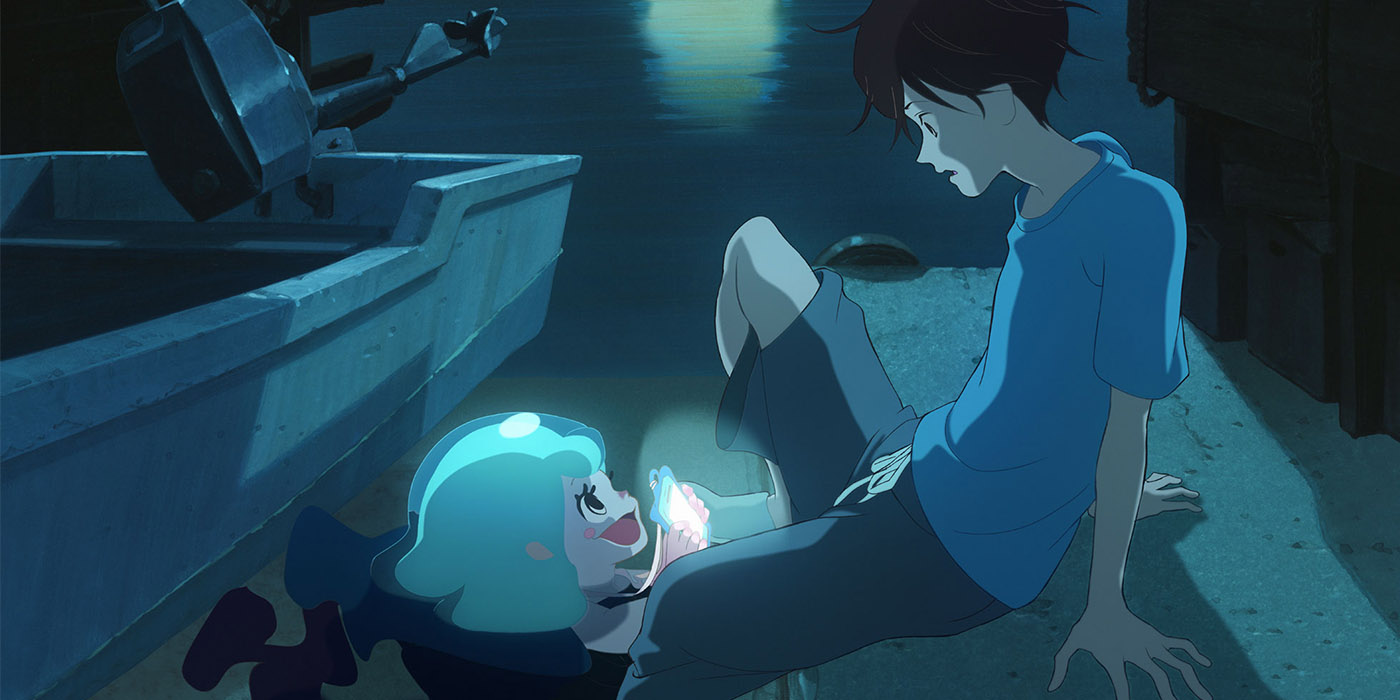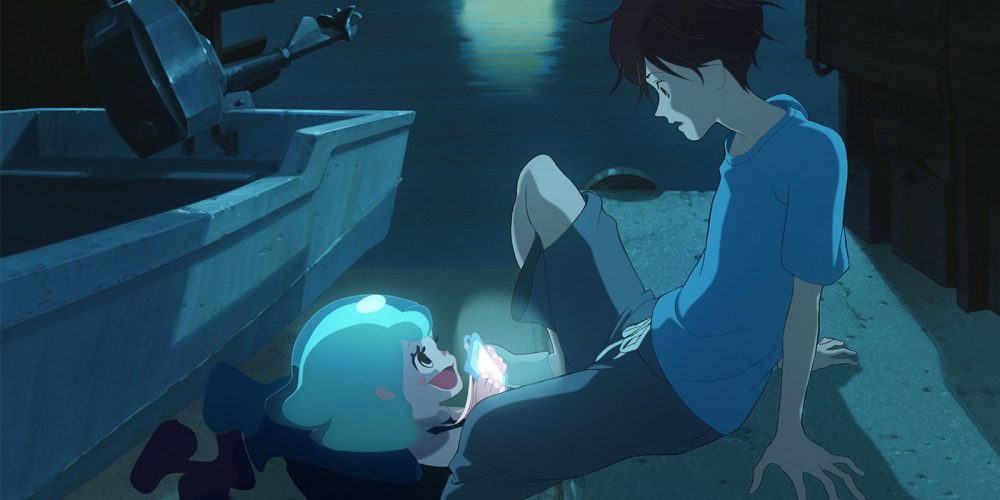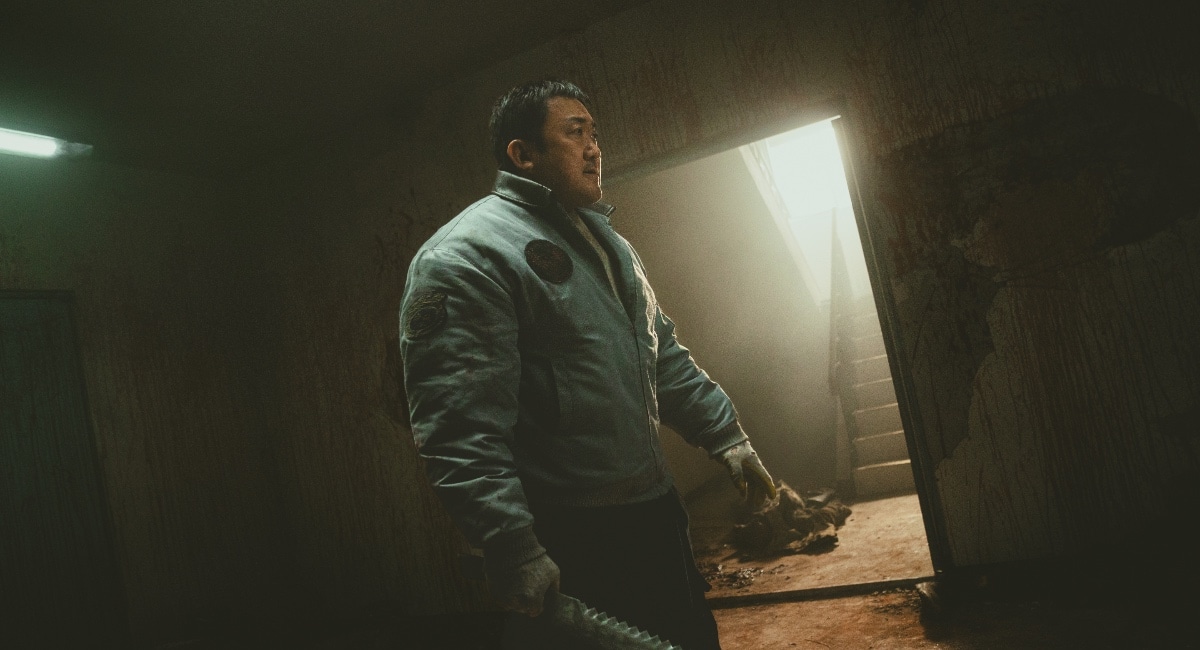Ever since Hayao Miyazaki, easily the most influential animator since Walt Disney, announced his most recent retirement – that he’s more or less already walked back on for a foray into CG animation – critics have consistently cast about for the answer to who might fill the Totoro-sized void left in his wake. There’s plenty of arguments to be made for the crews at Pixar or Laika, though I tend to find neither quite hits the same transcendent note of Miyazaki at his best, or even on his slightly off days. And for anime-aficionados, proponents abound for Mamoru Hosoda, and more recently Makoto Shinkai, though I bristle especially at the oft-too maudlin nature of the latter. I might allow a debate over Cartoon Saloon…maybe….
But in the past year, the brilliant mind behind efforts like the cult classic Mind Game and Ping Pong: The Animation (my favorite animated series ever), Masaaki Yuasa, with his still young studio Science Saru, developed two totally disparate projects that actually channel the spirit of its legendary forebearer in a way that no other animation outfit has quite matched. With this past Winter’s Devilman Crybaby, Yuasa turned Go Nagai’s action classic into a heartbreaking tragedy with the kind of gutting moments of naked emotion that would be on par with the finest work of Isao Takahata, and now – releasing this weekend, comes that series’ exact opposite in almost every way but quality; a sort of My Neighbor Totoro to Devilman’s Grave of the Fireflies…if the latter had a giant orgy that summoned demons, of course.
Lu Over The Wall is Yuasa’s first big screen work aimed at families, and it’s a perfectly pitched narrative that provides enough high adventure to keep the young ones engaged, but enough visual pizzazz and off-the-cuff antics that adults won’t find themselves peering away to look at their phones. Lu centers on a middle schooler named Kai, who sits in his room and creates music that he uploads to YouTube. He’s not too far off from the quiet, contemplative protagonist that Yuasa makes his stock and trade, but it’s really just a starting point for the madcap adventure to come. The town he lives in is permeated by myths of the Merpeople that live just outside of their seaport and according to the belief of the citizenry, bring nothing but tragedy.
One day, when Kai decides to join an energetic pair of his school friends for a band practice in an abandoned amusement park stage, their music attracts a young mermaid named Lu who takes it upon herself to join in on the jam session. At that moment, the film cracks wide open from a quiet seaside tale of repression, to a kind of Tex Avery hullabaloo. After that kind of infusion of pop-magic, Lu becomes their secret singer and sets off a course of actions that will set off a sensation, while also revealing some deeply hidden truths about some of the town’s more prominent citizens, and in turn bring its population to the brink of disaster…with only Kai, his bandmates, and Lu standing in its way.
If given an elevator pitch for the above, I’d probably phrase it something like this: “If Hans Christian Andersen was really into acid and avant-garde pop, he might cook up something like Lu Over The Wall“. Its base arc, while not straying too far from the broader beats you might expect: a boy is coaxed out of his insular nature by a vibrant, otherworldly girl, is subverted heavily by its utter visual unpredictability and how Yuasa turns both the mermaid concept and their associated abilities on its head. Turning them into ersatz vampires, but really adorable ones, gives way to a number of clever sequences including one of my favorite moments in cinema this year: an army of merdogs who just want to help the humans they love. That’s not to say it’s an experience without its own touching passages, the tragedy that has marked Lu’s life is touched upon only briefly, but it lingers a bit, and that goes doubly so for the traumatic past that informs Kai’s grandfather’s own backstory.
It’s worth noting, Yuasa has honed some of the rougher edges off his style here, whereas previous outings have found him in an anatomical vein that might bring to mind the work of Ronald Wimberly (and a major about-face from more popularized anime stylings), with Lu Over The Wall, he takes a slightly more rounded, general audience appealing approach with some of his most attractive figure work yet. This, of course, is just a feint, because once Lu makes her appearance in a big block of green jelly, or her giant shark pipe-smoking dad hits the scene, or the first of a number of eye-popping head-bobbing musical numbers hit, all bets are off. It’s like Lu is casting out her siren song, not only on those within earshot, but the viewers as well. I found myself particularly fond of the flashbacks, which gave way to even brighter, more stripped-down sequences. This is a master in command of all of his tools, and he’s able to pull along his audience confidently into the abstract without it ever feeling like an unnecessary digression.
Given the year he’s just had, with two standout releases and another to come this Summer (a spin-off of The Tatami Galaxy, no less), international animation may very well have found its new king.








